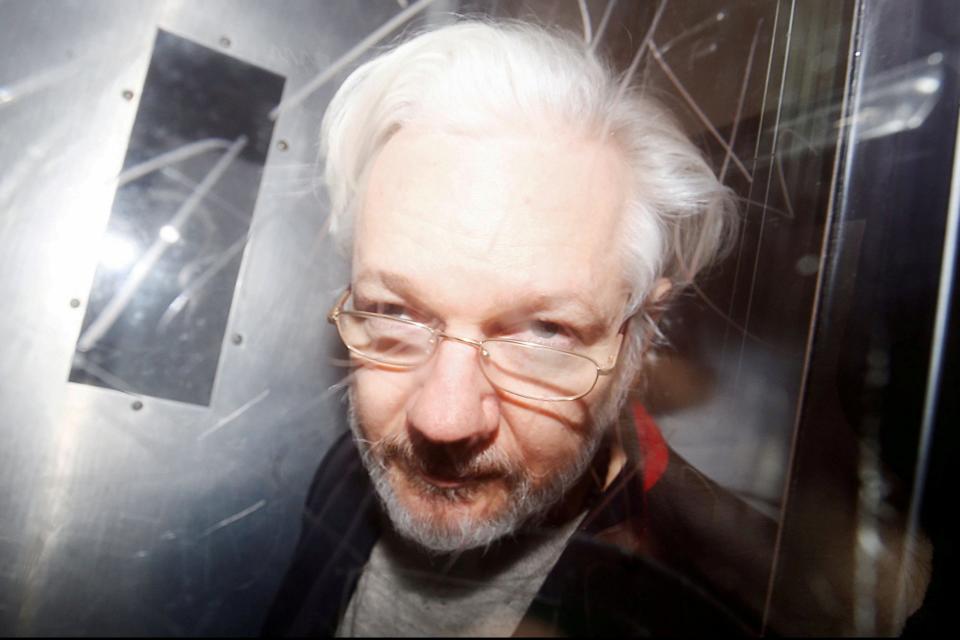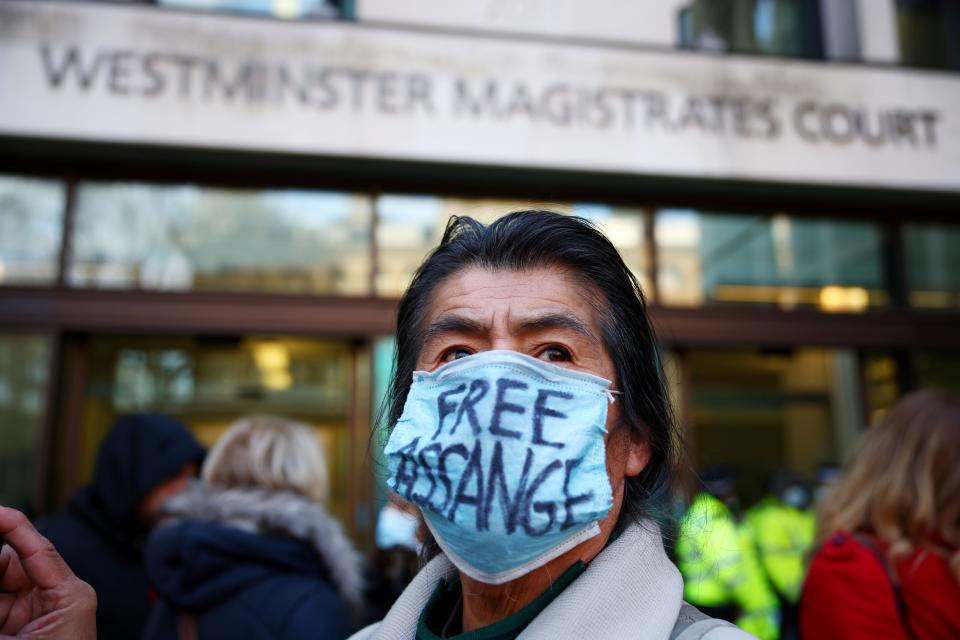WikiLeaks founder Julian Assange denied bail as US appeals blocked extradition bid
Watch: WikiLeaks founder Julian Assange refused bail after avoiding extradition to US
Wikileaks founder Julian Assange has lost his bid to be set free from prison as he continues his fight against extradition to the United States.
A judge ruled on Monday that Assange, 49, should not be sent to America for trial over the leak of around 250,000 classified documents and cables.
District Judge Vanessa Baraitser said while she believed Assange would face a fair trial in the US, there was an “oppressive” risk that Assange would kill himself if sent to a high-security American prison.
However the US has already lodged an appeal against the ruling.
Today at Westminster magistrates court, Assange made a fresh application for bail while he awaits the outcome of the appeal, seeking freedom within the UK.
He argued he is now “anchored” by a family in the UK, promised to abide by bail conditions set by the British courts, and has “every incentive to stay…where he has the protection of the rule of law and this court’s decision”.
But the US insisted Assange has previously shown himself willing to skip bail – as he did in 2012 when he sought asylum in the Ecuadorian Embassy – and go to “extraordinary length” to avoid a criminal trial.

Judge Baraitser today refused to grant bail, agreeing that she could not sure Assange would comply with the courts if he loses the extradition appeal.
“Mr Assange still has an incentive to abscond from these as-yet unresolved proceedings”, she said.
“The US must be allowed to challenge my decision, and if Mr Assange absconded during the process they will have lost the opportunity to do so.
“Mr Assange has already demonstrated he has been willing to flout the orders of this court.”
Assange will now be remanded back into custody at HMP Belmarsh to await the appeal.
“He is someone who has shown himself as capable of going to extraordinary lengths to avoid extradition”, said Clair Dobbin, representing the US government.
“He is willing to spend seven years living in a small embassy with all the privation that apparently involves and the consequences he claims it has had on his health.
“The court can’t sensibly proceed on the basis Mr Assange will take his chances on the outcome of the appeal process.”

Assange sought refuge in the Ecuadorian embassy in Knightsbridge in 2012 when facing extradition to Sweden, saying he feared then being shipped onwards to the US.
He is accused of conspiring with US military analyst Chelsea Manning to hack and leak confidential documents relating to prisoner detention and US policy around the Afghan and Iraq wars.
Ms Dobbin said Assange’s previous decision to skip bail in 2012 was done despite friends and associates losing large amounts of money they had put up to secure his freedom.
She said Assange “regards himself as above the law and no cost is too great, whether a cost to himself or others in terms of avoiding being sent to the US”.
She highlighted the assistance Assange and Wikileaks had offered to Edward Snowden when he was wanted by the US authorities, including discussions of flights to safe countries.
“That should leave the court in no doubt as to Mr Assange’s resources, ability, and sheer wherewithal to arrange flights to another country.”
Making the bail application, Edward Fitzgerald QC, for Assange, insisted the ruling on Monday “changed everything” and argued Assange could now be trusted to remain in the country to see out the court process.

“Mr Assange now has every reason to stay in this jurisdiction where he has the protection of the rule of law and this court’s decision.
“He has every reason to abide by bail conditions, however stringent.”
He said in contrast to 2012, Assange now has a partner and fathered two children during his time in the embassy, and if bailed would join them at the family home.
“Allowing actual physical contact with his family would alleviate mental distress and anchor him to a family and a community for the first time”, said Mr Fitzgerald.
“It is a new factor which totally changes the position.”
Assange suggested he could be put on an electronic tag, monitored around the clock, and “effectively put under house arrest”, with a financial sureties offered to the court.
Mr Fitzgerald also argued that Assange would be safer from the risk of catching coronavirus if on bail, rather than housing in cramped conditions in HMP Belmarsh.
No date for the appeal hearing has been set.
Watch: Assange partner renews call for US to drop extradition
Read More
Australia urged to act to end Julian Assange extradition saga

 Yahoo News
Yahoo News 
